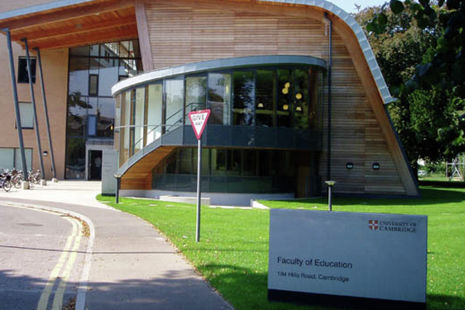Head of Education Faculty calls for ‘rewilding’ education system
Professor Cremlin condemned the present education system as ‘obsolete’

Professor Hilary Cremin, the Head of the University of Cambridge’s Faculty of Education, condemned modern school systems as “obselete” in talking about her recent publication arguing for education to instead be “rewilded”.
In her new book ‘Rewilding Education’, Cremin called for “systematic transformation” in education systems both in the UK and globally.
Her call for education to be “rewilded” is a call for school systems to let go of a rigid, one-size-fits all approach, in order to allow for more holistic and less predictable forms of learning.
Her criticisms seek to grapple with societal changes related to climate change, artificial intelligence, and “post-truth politics”.
She claimed this is due to the current education system being unable to nurture creativity, critical thought, or the wellbeing of both students and teachers.
She argued that the education system needs to prioritise focusing on student’s social and emotional development alongside their academic achievement, particularly emphasising physical and mental health.
Cremin acknowledged her ideas, necessitating “a completely new vision of what education involves,” would be challenged by educational traditionalists and policy-makers. Over a decade ago in 2013, the then Education Secretary Michael Gove branded her and other critics “enemies of promise” upon them criticising his educational reforms at the time.
She remained adamant that a decade later there is still no evidence that those reforms have been successful but have only narrowed the attainment gap between wealthy and poorer students unlike what it was intended to do.
Research has shown that the gap widens throughout school, resulting in the equivalent of more than 19 months of learning by the end of secondary education.
“Despite decades of reform, I think the school system as we presently configure it may be beyond redemption,” Cremin said. “This isn’t an attack on the idea of education, or on the thousands of brilliant teachers who give the job their all. But government after government has tinkered with education when the basic model is obsolete.
“If we keep preparing children for the second half of the 21st century using a system designed in the 19th, it could do catastrophic harm. We need to rethink what it means to educate, and what we are educating for.”
The focus on high-stakes testing, she added, fuels poor mental health while zero-tolerance behaviour policies have driven a 60% rise in permanent exclusions since 2015, which primarily affects disadvantaged students four times more than their wealthier peers.
In her book, published in late July (25/07), she wrote: “We are educating for jobs and lifestyles that will soon cease to exist, while failing to educate for those that don’t yet exist.” The education system needs substantial reform to prepare pupils for a world shaped by the climate crisis, downward mobility, generative AI and post-trust politics.
 News / Hundreds of Cambridge academics demand vote on fate of vet course20 February 2026
News / Hundreds of Cambridge academics demand vote on fate of vet course20 February 2026 News / Judge Business School advisor resigns over Epstein and Andrew links18 February 2026
News / Judge Business School advisor resigns over Epstein and Andrew links18 February 2026 News / University Council rescinds University Centre membership20 February 2026
News / University Council rescinds University Centre membership20 February 2026 News / Petition demands University reverse decision on vegan menu20 February 2026
News / Petition demands University reverse decision on vegan menu20 February 2026 News / Caius students fail to pass Pride flag proposal20 February 2026
News / Caius students fail to pass Pride flag proposal20 February 2026










